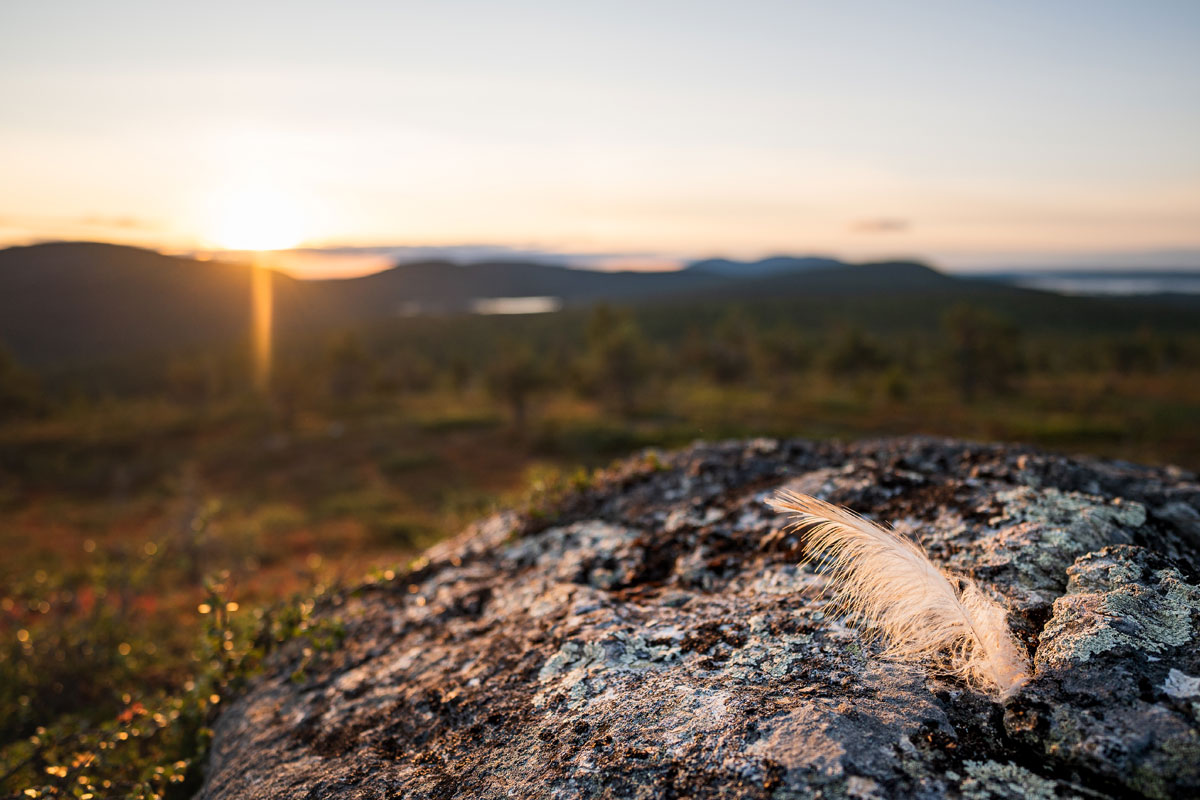MORE RESPONSIBLY OUTDOORS
At Scandinavian Outdoor, corporate responsibility means respecting nature and people in all our activities. At the core of our responsibility strategy are responsible sourcing, environmental responsibility, efficient logistics in our online store and physical locations, personnel well-being, and social responsibility. In our industry, sustainable development supports long-term and profitable business, as only by respecting nature and people can outdoor activities and hiking in pristine environments remain possible for all of us in the future.

Responsible sourcing
Our most significant environmental and social impacts arise from the manufacturing processes and life cycle of the products included in our assortment. For this reason, product durability and quality have long been central principles in our operations. Extending product lifespans reduces the need for frequent replacement and contributes to more responsible consumption.
In reality, the only truly responsible option would be not to buy anything new at all. However, given current consumption patterns, we focus our efforts on promoting more responsible practices within the industry. We do this primarily through our purchasing decisions and the selection of brands and products offered in our assortment.
Our purchasing practices aim to promote sustainable development across the value chain. When selecting brands, we assess their commitment to environmental and social responsibility, their transparency, and their use of credible, third-party certifications. Each product is evaluated individually, and inclusion in our assortment is based on clearly defined and justified criteria.
The design of our product assortment is guided by a set of responsibility principles, including:
- All down products contain only ethically sourced down.
- Fur is excluded from our assortment.
- Merino wool garments are produced using mulesing-free merino wool.
- Whenever feasible, we prioritise products manufactured in Finland and Europe.
Through responsible product and sourcing choices, we aim to contribute to improvements in environmental and social responsibility across the value chain, supporting the long-term availability of outdoor activities for future generations.
Transparency about the sustainability of our product range
Our vision for the sustainability of our product range is to make product selection easier and to clearly communicate each product’s sustainability profile at the point of purchase. In practice, this means enabling customers to compare the sustainability of products in the same way as their features and price.
Our intention is not to rank products, but to provide available facts and support informed decision-making. Our goal is to offer transparent sustainability information for all products and to be open about data gaps when information is not available. We believe that, when given the opportunity, most people choose more sustainable options.
Carbon footprint
The management and systematic reduction of climate-related impacts form an integral part of the company’s responsibility strategy. The company has been awarded the Carbon Footprint Calculated label by the Central Chamber of Commerce, confirming that its Scope 1 and Scope 2 greenhouse gas emissions have been calculated and reduced in accordance with the GHG Protocol.
The programme is being expanded to include the setting of emission reduction targets and the assessment of Scope 3 emissions as part of the company’s broader climate transition efforts.
Stores and branches
Waste management and resource efficiency practices are implemented across our store and branch network. Recyclable waste is collected and recycled, and customers are encouraged to use their own shopping bags. When required, plastic bags made from 80% recycled content are provided.
Returned and claimed products are managed in accordance with circular economy principles. Products that remain saleable are returned to the sales channel, while defective items are repaired or replaced to minimise waste.
Circular economy
The circular economy offers benefits in many ways. You do not need to own everything, and much outdoor equipment can be repaired or recycled. We provide rental, repair, and second-hand services that support product reuse and waste reduction. The circular economy services are currently available in Finland and Finnish only.
Logistics
Improving logistics efficiency is an important component of the company’s environmental responsibility and customer experience. The company works with logistics partners that have publicly stated climate targets, including carbon neutrality targets by 2030 for Posti and PostNord and by 2050 for UPS.
Social responsibility
We are a Finnish company and hold the Key Flag Symbol, which indicates that our services are produced in Finland. Our ownership is 100% Finnish, and we employ more than 100 outdoor specialists in Finland. We strive for long-term operations and aim to provide a positive and inspiring workplace for our personnel.
We prioritise Finnish partners and choose local collaboration whenever possible.
We have worked closely with the Guides and Scouts of Finland for many years and serve, among other roles, as an official supplier to the organisation. This means we are responsible for the sale and distribution of official scouting products, such as badges and scout uniforms. The purpose of this cooperation is to ensure the availability of scouting products throughout Finland. Through our corporate sales channel, customers also have the opportunity to make donations to Friends of Scouting.
Our customers, outdoor specialists, and partners are united by a shared love of nature. Forests provide a place for calm and recovery, as demonstrated by both our customer survey results and several national studies. Together with our customers and partners, and through our own contributions, we raise funds for the Finnish Natural Heritage Foundation. These donations will be used to establish the Elämää Ulkona (“Life Outdoors”) forest conservation area, which will be located in southern Finland. Please note that information about the Elämää Ulkona forest and the related website is currently available in Finnish only.